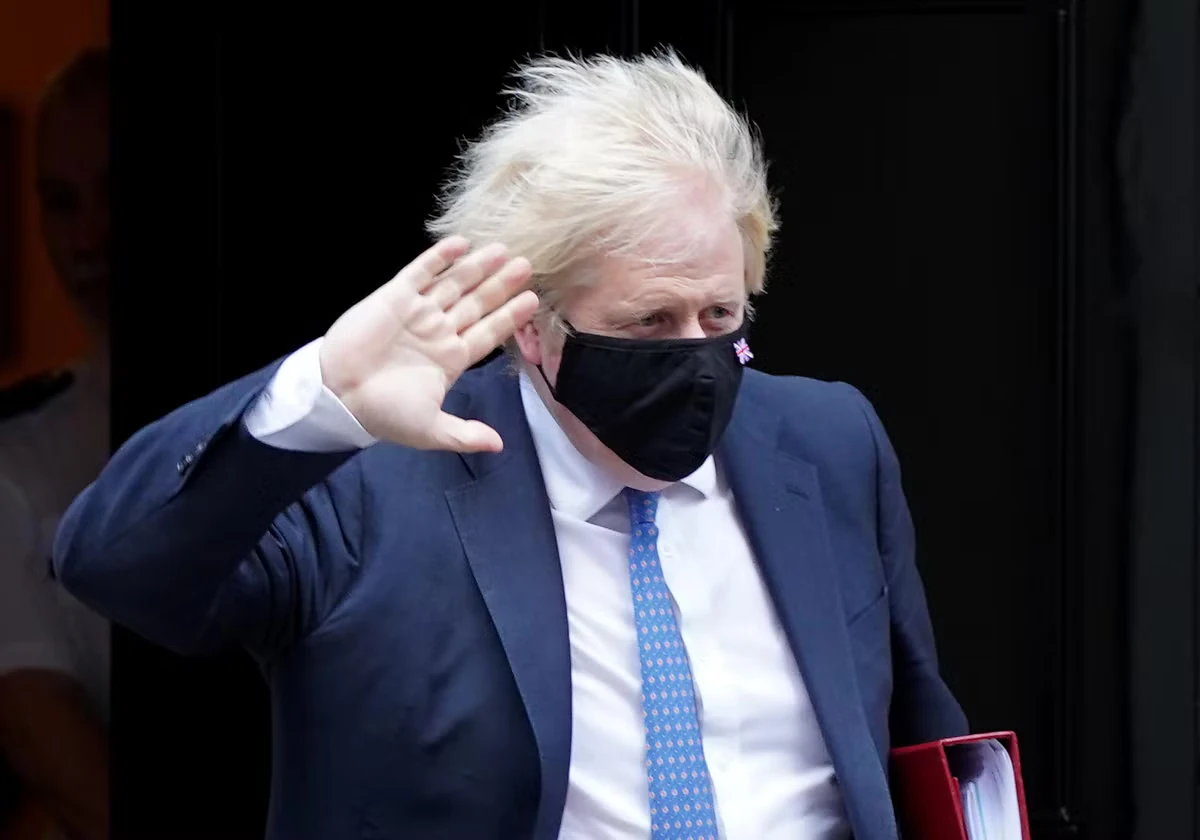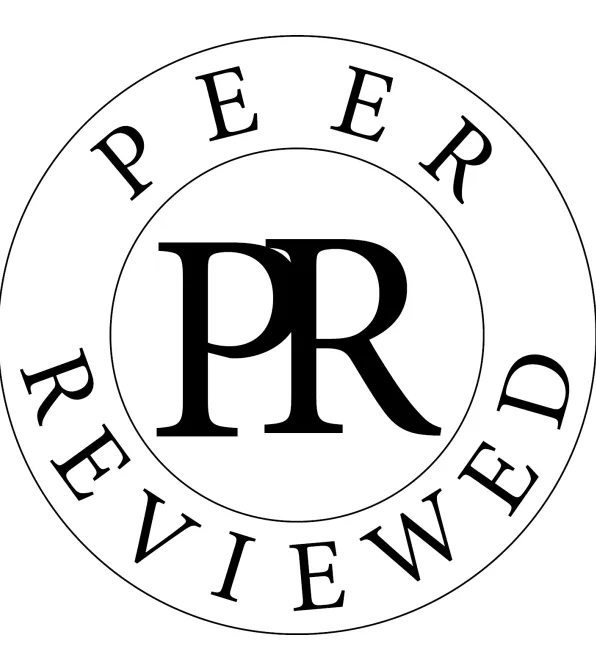Brexit, Covid and “Partygate”: The Beginning of the End of Johnsonian Populism in the UK?

Jonathan Dunnage, Brexit, Covid and “Partygate”: The Beginning of the End of Johnsonian Populism in the UK?, «Bibliomanie. Letterature, storiografie, semiotiche», 53, no. 16, giugno 2022, doi:10.48276/issn.2280-8833.9813
The ongoing scandal concerning parties held in Downing Street during periods of Covid lockdown has engulfed British politics, threatening the future of the Conservative Prime Minister, Boris Johnson, as he faces public resentment that while they made enormous sacrifices in the face of the pandemic, often with tragic consequences, he broke his own rules. Though the onset of the Ukrainian crisis temporarily diverted attention away from ‘Partygate’, the issuing of a lockdown fine to Johnson on 12 April 2022 following a police investigation reignited the controversy.1 The scandal raises several questions about the current state of British politics. Has Johnson fallen victim to his own brand of populism? Are we reaching the end of a style of British Conservative politics that has been inseparable from Brexit? How far has Brexit itself been a success two years after leaving the EU? Does Johnson still have the support of those who voted to leave the European Union in June 2016, to whom he largely owes his landmark victory at the general election of December 2019?
On the morning of 24 June 2016, many Remain voters were shocked at the outcome of the EU referendum. The result undoubtedly reflected the success of populist narratives.2 Given the official Leave campaign’s heightened focus on immigration during the final weeks before the polling stations opened,3 it was easy to conclude that this had overwhelmingly been a vote against migrants, exposing a racist Britain. If hostility towards immigration certainly played a key role in the referendum outcome, Brexit was also about ‘returning’ Britain’s ‘lost’ sovereignty and its right to make its own laws and regulations without ‘interference’ from Brussels. Analysts also considered the wider picture of David Cameron’s austerity politics since 2010, leading to a reduction in social benefits and increased poverty, alongside failure to replace traditional industries hit by globalization, though inevitably these factors were also linked to concerns about immigration.4 Put by the Guardian columnist, John Harris, with reference to some of the poorest communities in the country, subsequently named ‘Brexit heartlands’, voting Leave was a response, not only among white citizens, to a state of hopelessness when ‘even the most basic expectations – of education, work, housing, and all-round security – seemed clouded in doubt. Immigration was a subject tangled up with exactly this sense of uncertainty, to the point that it was almost impossible to discuss as an issue in itself.’5
While Teresa May, who succeeded David Cameron as Conservative Prime Minister in July 2016, was quick to recognize the inequalities at the root of the Brexit vote,6 widespread dismay about the referendum outcome prompted some to go as far as to imply that the public had lacked the intelligence to vote the right way and that decisions of this type should be left to experts.7 Yet, illustrating the cultural tensions underlying Brexit, often vocally played out in the media, Leave proponents, favouring the will of the ‘people’ over experts, seized upon this type of claim as elitist.8 Casting Remainers as ‘Remoaners’, some saw continued opposition to Brexit, also expressed in nationwide protests and calls for a second referendum, as an attempt, with backing from within the ‘establishment’, to block the democratic vote and, therefore, betray the ‘people’.9
Following painful negotiation with the EU over the terms of Britain’s exit, matched by an equally drawn-out struggle between the British government and parliament, Brexit finally happened after Boris Johnson won a landslide majority at the December 2019 general election. Johnson’s electoral success was largely determined by his slogan ‘Get Brexit done’, and by the crumbling of the ‘Red Wall’ of traditionally Labour constituencies.10 This reflected the notable proportion of Leave voters among traditional Labour supporters, many of whom resented the Party’s apparent indifference to their feelings about immigration.11 The election also led to the solidification of a populist style within the Conservative Party that was not solely about Brexit. According to the political scientist Matthew Flinders, the election saw the Conservatives under Johnson ‘absorbing the populist tradition that had until that point resided in the UK Independence Party and then the Brexit Party.’12 Flinders underlines Johnson’s personal form of populism in which clown-like behaviour concealed ‘a deeper statecraft strategy, key to which is an explicit focus on fuelling and funnelling frustration amongst those sections of the public most disaffected with “conventional” politics.’13 Moreover, he sees this as ‘upper crust populism’, owing to Johnson’s privileged establishment background but his ability nevertheless to draw widespread support by presenting himself as a rule-breaker.14
A paper produced by political scientist and elections expert John Curtice in June 2021, to mark the fifth anniversary since the Brexit vote, based on NatCen Panel surveys, confirmed that the country remained divided over leaving the EU. By analysing estimated outcomes of a repeat referendum over the previous five years, Curtice cautiously argued that ‘it may well be the case that Remain supporters slightly outnumber their Leave counterparts’. 15 Dispelling any suggestion that Leave and Remain voters were necessarily poles apart, Curtice’s paper shows that many in both camps shared the belief that, as a consequence of Brexit, EU citizens should undergo immigration controls in order to live in the UK, rather than benefit from freedom of movement.16 Equally worth underlining is Curtice’s finding that, while most Remain supporters believed that Britain would be economically worse off after Brexit, ‘Even with the conclusion of the free trade agreement with the EU, only around a half of Leave voters (51%) believe that the economy will be better off as a result of leaving the EU, while one in five (20%) believe it will be worse off.’17
If we consider shortages of key workers, previously supplied from the EU, and the major bureaucratic challenges facing small businesses exporting across the English Channel, not to mention problems in the supply of goods from the British mainland to Northern Ireland as a result of the Northern Ireland protocol, the initial economic picture for post-Brexit Britain has hardly been positive.18 When in January 2022 the news organization Politico asked experts on both sides of the Channel what had been learned from Brexit a year after fully leaving the EU, Robin Niblett, of the Chatham House UK think tank, noted that despite difficulties distinguishing the economic effects of Britain leaving the EU single market and customs union from those of the pandemic, ‘by August 2021, Britain’s total goods trade with the rest of the world had recovered to 7 percent below average 2019 levels whereas it remained 15 percent lower with the EU.’19 Equally important to the post-Brexit economy is Britain’s wider global influence, now that it is free to steer its own course. In his response to Politico, Nick Witney of the European Council on Foreign Relations suggests a post-Brexit decline in Britain’s international standing, citing ‘an (unsuccessful) bid to get the Americans to remove tariffs on British steel and aluminium exports, as they had already agreed for the EU’, humiliation by the US in Afghanistan, and the illusory belief that there were major commercial opportunities in the Indo-Pacific. Witney concludes that Britain could return to being a leading international player ‘only if its government sheds the Brexiteers’ nostalgic fantasies’.20
Beyond concerns over the economic impact of leaving the EU, division over Brexit can also be roughly aligned to wider cultural tensions. ‘Wars’ over freedom of speech, animated by the arrival of ‘woke’ and ‘cancel’ culture are often played out in the media.21 Black Lives Matters protests, leading to the toppling or removal of statues and images of historic figures (as well as names in their honour) for their involvement in the slave trade, have ignited public debate about how to represent the history of British colonialism and its cultural heritage.22 On occasion Johnson’s government has appeared to involve itself too directly in these culture wars. During the delayed Euro20 football championship, Johnson and the Home Secretary Priti Patel failed to condemn fans for booing the England team for ‘taking the knee’ at the start of matches in a show of respect for the Black Lives Matters movement. Johnson and Patel were later branded as hypocrites after expressing their disgust at racist abuse against three black England players (‘guilty’ of failed penalty shots), following England’s defeat to Italy at the final.23 While the government can point to the multi-ethnic make-up of its cabinet and wider team as proof that it is not racist, the Windrush scandal of 2018 concerning the wrongful detention, deportation and loss of rights of Commonwealth citizens,24 allegations of Islamophobia in the Conservative Party,25 and the Nationality and Borders Act, under which the government is impowered to remove an individual’s citizenship on national security grounds without them being informed (but which in practice could be applied more easily against ethnic minorities),26 do little to reassure critics. Moreover, a series of scandals concerning racism, homophobia, and misogyny in the Metropolitan Police led to the resignation of its chief last February.27
So what now? In his 2020 analysis, Flinders noted that Johnson’s brand of populism may have been effective in getting him to power but stressed that he ‘must now demonstrate that being Prime Minister is not a joke’.28 It is certainly true that the Covid pandemic forced the Johnson government to show that it takes experts seriously again.29 Johnson’s future may depend on the long-awaited full report on the lockdown parties.30 So far, not enough Conservative MPs have been prepared to challenge his leadership. There is little evidence that the party’s poor (though not as disastrous as anticipated) performance at the local elections on 5 May will change this.31 Moreover, Labour’s share of the vote in former ‘Red Wall’ areas that had been crucial for Johnson’s 2019 electoral victory was disappointing.32 Amid spiralling inflation and energy costs, key to Johnson’s longer-term survival will be his ability to persuade working-class voters that he is serious about spreading wealth and opportunity throughout the country, as set out in the Conservatives’ 2019 election manifesto.33 Recent government plans for ‘levelling up’ have generally been dismissed as inadequate.34 There is no certainty that the current situation heralds a distancing from populism in British politics. Moving away from Johnsonian politics will not be so straightforward for the Conservatives. Nesrine Malik argues in the Guardian that ‘Johnson and party impunity, both so diligently promoted over the past few years, mean it is nearly impossible to reverse course without blowing up the entire operation’.35
Returning to Brexit, Jonathan Freedland writing in The Guardian stresses that Putin’s actions in Ukraine demonstrate that far from being what Eurosceptics branded a foreign occupier, ‘the EU was founded out of the conviction that the only future for a continent that had been at the centre of two world wars in 30 years was to come together: to share sovereignty rather than to kill for it’.36 In this regard, Robin Niblett argued ahead of the outbreak of war that ‘Putin’s threatening military build-up on the border with Ukraine (…) has brutally reminded Boris Johnson that his global ambitions can only be exercised from a secure European base.’37 The Ukrainian crisis may also have brought home to many Britons the reality of tough post-Brexit policies on immigration and asylum. Suggesting that the government was out of touch with the public,38 the Home Office’s limited and chaotic offer of sanctuary to Ukrainian refugees in the first weeks of the Russian assault was very quickly condemned as inhumane.39 This situation is undoubtedly a consequence of the culture and policies of Brexit. As put by the BBC News home editor, Mark Easton on 10 March, ‘The government is trying to respond to a humanitarian disaster while still following the Brexit playbook.’40
Note
- Jennifer Scott, Boris Johnson and Rishi Sunak reject calls to resign over lockdown fines, in “BBC news” online, 13 April 2022 (last date of access 10 May 2022).
- For the employment of populism in the Leave campaign, see David Smith, David Deacon and John Downey, Inside out: The UK press, Brexit and strategic populist ventriloquism, in “European Journal of Communication”, 36, February 2021, pp. 21-37.
- See ibidem, pp. 27-30.
- For an analysis immediately following the referendum of plausible causes behind the Brexit vote, see Tony Travers, Why did people vote for Brexit? Deep-seated grievances lie behind this vote, British Politics and Policy academic blog, London School of Economics, 29 June 2016 (last date of access 10 May 2022).
- John Harris, We should have known this was coming, in Neal Lawson (ed.), The causes and cures of Brexit, London, Compass, 2018, p. 6.
- See ibidem, pp. 6-7.
- See, for example, David Attenborough on his Brexit concerns – and why we DO need experts, in “RadioTimes.com”, 31 October 2016 (last date of access 10 May 2022).
- See response to Attenborough: Zoe Efstathiou, Outrage as David Attenborough says people were NOT WISE enough for Brexit vote, in “Express” online, 1 November 2016 (last date of access 10 May 2022).
- See, for example, James Slack, Enemies of the people: Fury over “out of touch” judges who have “declared war on democracy” by defying 17.4m Brexit voters and who could trigger constitutional crisis, in “Mail online”, 4 November 2016 (last date of access 10 May 2022).
- Daniel Wainwright, General election 2019: How labour’s “red wall” turned blue, in “BBC news” online, 13 December 2019 (last date of access 10 May 2022).
- See Harry Lambert, Labour’s lost future: The inside story of a 20-year collapse, in “The New Statesman”, UK edition, online, 2 September 2021 (last date of access 10 May 2022).
- Matthew Flinders, Not a Brexit election? Pessimism, promises and populism “UK-style”, “Parliamentary Affairs”, 73, Issue Supplement 1, September 2020, p. 238.
- Ibid., p. 229.
- Ibid., pp. 236-37.
- John Curtice, ‘Has Brexit been a success? The public’s perspective’, UK in a Changing Europe; NatCen Social Research, June 2021, p. 6.
- Ibid., p. 21.
- Ibid., pp. 23-24 (quotation p. 24).
- For a useful analysis of the initial economic impact of Brexit on businesses, see Douglas Fraser, Brexit: The economic impact a year on, in “BBC news” online, 21 December 2021 (last date of access 13 May 2022).
- Brexit Britain at 1: Here’s what we’ve learned, in “Politico”, 3 January 2022 (last date of access 15 May 2022)
- Ibidem.
- See, for example, Julie Burchill, Woke is the roar of smug, entitled mediocrities everywhere, in “Mail Online”, 24 October 2021 (last date of access 10 May 2022).
- For an example of related controversy in the tabloid press, see Katie Feehan, Revealed: Every reason the woke National Trust placed 100 properties on BLM-inspired list of shame including homes of Winston Churchill, Rudyard Kipling and William Wordsworth, in “Mail Online”, 22 September 2020 (last date of access 10 May 2022).
- See Rowena Mason, Johnson and Patel accused of hypocrisy over racist abuse of England footballers, in “The Guardian” online, 12 July 2021 (last date of access 10 May 2022).
- Windrush scandal explained, The Joint Council for the Welfare of Immigrants website (last date of access 11 May 2022).
- Nusrat Ghani: PM orders Cabinet Office to investigate “Muslimness” claim, in “BBC news” online, 24 January 2022 (last date of access 10 May 2022).
- See Nalini Sivathasan, Nationality and Borders Bill. Why is it causing protests? in “BBC news” online, 7 January 2022 (last date of access 11 May 2022).
- George Bowden, Cressida Dick to step down as Metropolitan Police chief, in “BBC news” online, 11 February 2022: (last date of access 10 May 2022).
- Flinders, Not a Brexit Election? p. 238.
- See ibidem, p. 240.
- On the report, see Sue Gray: No 10 pledges updated report after police enquiry finishes, in “BBC news”online, 1 February 2022 (last date of access 10 May 2022).
- See Laura Kuenssberg, , in “BBC news online”, 7 May 2022 (last date of access 10 May 2022).
- See Jane Merrick, Local elections 2022: Labour’s Red Wall progress stalls despite victories in London, in “inews” online, 6 May 2022 (last date of access 10 May 2022).
- Conservative Party Manifesto 2019 (last date of access 10 May 2022).
- See, for example, Poverty in Britain: Wrong man, wrong plan, in “The Economist”, 442, 5-11 February 2022, p.12.
- Nesrine Malik, Leaving Brexit populism behind will cost the Tories dear, in “The Guardian”, 7 February 2022, p. 3 of ‘Journal’.
- Jonathan Freedland, Putin is turning the long march of history into a sprint, in “The Guardian”, 5 March 2022, p. 3 of ‘Journal’.
- Brexit Britain at 1: Here’s what we’ve learned, in “Politico”, 3 January 2022 (last date of access 15 May 2022).
- Patrick English, Government remains far behind the public on Ukrainian refugees, YouGov, 9 March 2022 (last date of access 10 May 2022).
- See, for example, Sarah Vine, I’m deeply ashamed Britain is treating Ukrainians with such a lack of compassion, in “Mail online”, 11 March 2022 (last date of access 10 May 2022).
- Mark Easton, Ukraine war: UK Home Office is in crisis mode over visas, in “BBC News online”, 10 March 2022 (last date of access 13 May 2022).
Questo articolo è distribuito con licenza Creative Commons Attribution 4.0 International. Copyright (c) 2022 Jonathan Dunnage








